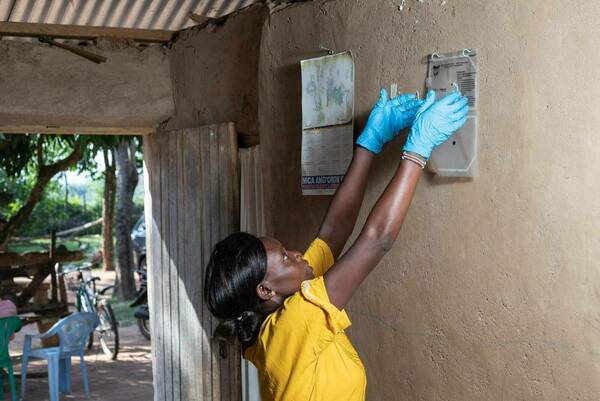Democracy is in the very fabric of Notre Dame
The topic of democracy is front of mind these days, especially now as we enter the summer of a presidential election year in the United States. The University of Notre Dame is unique in its position as a leading non-partisan voice in discussions about democracy, and the new Notre Dame Democracy Initiative signals the University’s commitment to build upon this distinctive legacy.
In this episode of For Good, David Campbell, the Packey J. Dee Professor of American Democracy and inaugural Director of the Notre Dame Democracy Initiative, discusses why people become disengaged from civic life, what gives him hope about the future of American democracy, and how Notre Dame can become a leader in establishing informed, civil discourse on democracy worldwide.
New episodes of For Good: Stories from Notre Dame drop on select weekdays at giving.nd.edu/stories and the ND Loyal YouTube channel. You can also listen to the podcast on Spotify and Apple Podcasts.
A sincere thank you to the Notre Dame Family for making stories like these possible! It's because of you that Notre Dame is such a powerful force for good in the world.
Originally published by at giving.nd.edu on July 11, 2024.
Latest Research
- NSF Cyber SMART’s fall meeting shapes fifth year of project, legacy and future plans, and adds new memberThe U.S. National Science Foundation (NSF) Cyber SMART center gathered for its fall meeting on the University of Notre Dame campus this September. The meeting served as a checkpoint with progress reports and new projects from research leads and students…
- Slavic and Eurasian studies professor wins Humboldt fellowship to research how Russia’s religious past shapes its presentWhen Russia invaded Ukraine on Feb. 24, 2022, Sean Griffin realized his second book needed a new title. Griffin, an associate professor in the University of Notre Dame’s Department of…
- Notre Dame’s R.I.S.E. AI Conference builds interdisciplinary collaboration to inform human-centered artificial intelligenceAs artificial intelligence (AI) transforms nearly every sector of society — from healthcare and education to governance and global development — a critical question emerges: How can we conscientiously design and deploy these powerful technologies to positively impact society? This…
- University of Notre Dame joins the Global Coalition of Ukrainian StudiesThe University of Notre Dame has joined the Global Coalition of Ukrainian Studies after signing a Memorandum of Cooperation (MOC), formalized on September 24, 2025, at the Ukrainian Institute of America in New York City. Notre Dame joined four other American…
- The University of Notre Dame’s Mendoza College of Business and Industry Labs team up to inspire national security manufacturing competitiveness in the regionThe South Bend - Elkhart Region is full of manufacturing companies that are poised to grow, and Executive Master of Business Administration (EMBA) and Master of Business Administration (MBA) students at the University of Notre Dame are finding innovative ways to contribute to that growth. Earlier…
- Notre Dame research informs WHO conditional recommendation for spatial repellents in malaria vector controlThe World Health Organization (WHO) recently announced a “conditional recommendation” for spatial emanators, also known as “spatial repellents,” in the fight against malaria. This key determination was informed by spatial repellent studies that included the Advancing Evidence for the Global Implementation of Spatial Repellents (AEGIS) Project in Kenya, led by the University of Notre Dame and funded by Unitaid. The findings from this particular study were recently published in The Lancet.













